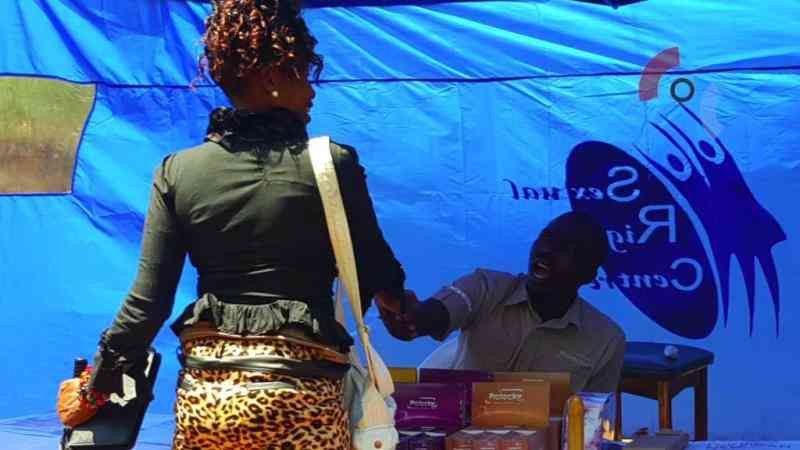
IN the poultry industry, many a farmer opts to keep chickens more than any other bird.
Possibly, it could be due to the fact that they have quick returns.
From broilers that take six weeks to mature, layers that bring in money on a daily basis and road runners which many people have a knack for, chickens rule the roost.
However, another bird is gaining the attention of farmers for its unique characteristics, adaptability and growing market demand: the guinea fowl.
The bird is increasingly getting recognised for its value as a sustainable and profitable source of income.
With its rich, gamey flavour and lean meat, the guinea fowl is winning over chefs and consumers.
It is 6am and the unique kek-kek-kek alarm calls and the chirr-chirr clucks of guinea fowls break the day for Kundai Mudzengerere of Chari village under Chief Charehwa in Mutoko, 145km north-east of Harare.
Mudzengerere is already up in the guinea fowl coop inspecting, cleaning and feeding his flock.
- Govt inputs sellers warned
- Refrigeration key in farming
- Zim’s poultry sector registers 6,2% growth
- Zim table eggs uptake rises by 47%
Keep Reading
Guinea fowl farming is now his full-time job after dropping out of an engineering course at Harare Polytechnic College as he was failing to balance the two.
“I started the project with 40 guinea fowls in 2019. I got a US$500 compensation from a mine I was working for in Mazowe when it was closed during the COVID-19-induced lockdown,” Mudzengerere told NewsDay Farming.
“As a person who had some experience in looking after road-runners in Mt Pleasant, Harare, I quickly tried guinea fowl farming as I had seen upmarket restaurants selling the meat.”
Through hardwork, dedication and perserverance, Mudzengerere grew his flock and now boasts of 130 parent stocks.
“I have 130 parent stocks which lay an average of three crates per day. Every five days, I take 15 crates to Avondale in Harare to the incubator for hatchery so l can have an average of 450 keets every 28 days.
“I normally sell day-old keets at US$150 per 100. With good management practices, guinea fowls bring joy and are a dependable source of income. I have a reliable source of income of at least US$500 every week.
“As the breeding season begins in October-March, I save 20% of the keets per every batch that would have been hatched from the incubator. I raise and sell them when it is off season so that I can keep supplying my clients.
“I mostly sell my birds to takeaways and restaurants in and around Harare. I also sell eggs and they are in great demand, particularly as the breeding season draws nearer. A guinea fowl lays at least 100 to 150 eggs per breeding season,” the 30-year-old farmer said with a smile on his face.
To survive in this line of agribusiness, Mudzengerere ensures that his flock is protected from diseases and predators.
“Guinea fowls by nature are aggressive to predators like snakes, but I built a special coop where they are safe with some nesting boxes. We also have some vicious dogs which offer reliable security,” he said.
“Guinea fowls are resistant to diseases, but as a preventive measure, I usually use home-made remedies like aloe vera [gavakava] and chillis [mhiripiri]. I crush and mix in water so that they drink. Aloe vera has antimicrobial and immunomodulatory effects, thus can improve intestinal health.
“I usually burn donkey dung, which helps to kill or chase away mosquitoes that might transmit diseases. I have not experienced any disease outbreak since I started.”
Mudzengerere added: “When it’s not breeding season, I let the guinea fowls do free range, although I feed them with organic foods such as rapoko, sorghum, maize and millet. I have a field specifically meant to cater for the birds.”
Through guinea fowl farming, the farmer has been able to support his family.
“I am an inspiration to the community because I am eking a living out of guinea fowl farming. I have also managed to get a one-and-a-half hectare piece of land, where I grow crops to feed the birds,” he said.
Although Mudzengerere has an income-generating agribusiness, his journey faced challenges.
“Guinea fowl farming is profitable, If I have a reliable source of power like an installed solar system which may power the incubators for hatching eggs, this may boost my agribusiness,” he told NewsDay Farming.
“This will also save time and money to hire transport to deliver eggs to Avondale in Harare for hatchery, where there is reliable electricity.
“I also face a challenge of transporting guinea fowls and eggs for sale to my customers since I need a truck to deliver them on time.”
Despite the challenges, Mudzengerere has a vision of growing big and become a major supplier of guinea fowls countrywide as well as an exporter to European and Scandinavian countries, where they are in huge demand.
His guinea fowl farming venture in rural Mutoko is poised for success, leveraging the region’s favourable climate and abundant resources.
By adopting sustainable practices, providing quality care and tapping into local markets, he will not only generate income, but also contribute to food security and economic growth in the community.






